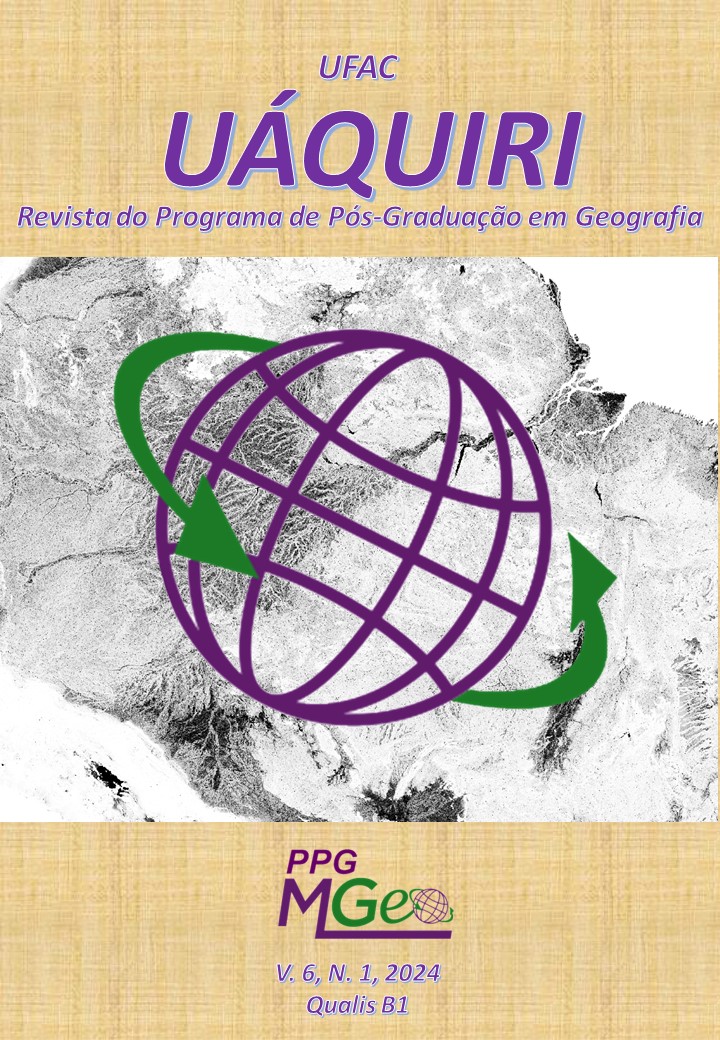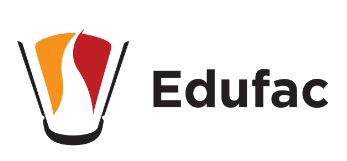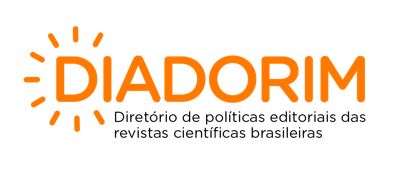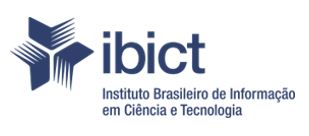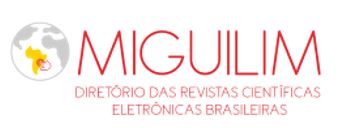SISTEMA AGROALIMENTAR
DIAGNÓSTICO DAS AÇÕES PARA O DESENVOLVIMENTO DA AGRICULTURA FAMILIAR NA AMAZÔNIA SUL OCIDENTAL
DOI:
https://doi.org/10.29327/2463817.6.1-12Palavras-chave:
Políticas Públicas; Agroecologia; Rede de colaboração.Resumo
Atualmente, o interesse dos consumidores pela segurança e qualidade dos alimentos tem sido uma crescente, em razão de estarem conscientes da origem dos alimentos, da transparência e rastreabilidade nos processos produtivos. A agricultura familiar é um grande indicador de alimento com qualidade e isento de riscos nocivos à saúde do homem. A coexistência dos sistemas agroalimentares se torna ferramenta essencial e com grande potencial de crescimento a ser estudado, como fonte de desenvolvimento e fortalecimento da agricultura familiar, utilizando como fonte os agentes promotores, ações e projetos outrora desenvolvidos pelo setor público, setor privado e o terceiro setor. A pesquisa trata–se de um estudo descritivo com abordagem qualitativa. Para tal, a pesquisa se dividiu em cinco etapas cruciais, quais sejam: Levantamento das instituições (Embrapa, CPT, SOS Amazônia, Semapa e Banco da Amazônia), visitas in loco as instituições, identificação da rede de trabalho, caracterização das limitações e estratégias de apontamento. Evidenciou–se que, os agentes promotores que potencializam os sistemas agroalimentares, a partir de projetos e ações de modo a fortalecer a agricultura familiar no município, atuam em diferentes áreas, mas com o mesmo interesse, ou seja, o fortalecimento das cadeias produtivas. As instituições públicas, privadas e do terceiro setor encontradas, possuem projetos que se cruzam em relação a interesses e objetivos diretos, no entanto, diante do diagnóstico realizado, essas instituições não possuem uma relação de parceria consolidada, assim, dificultando os meios de fortalecimento da agricultura familiar e dos sistemas agroalimentares na região.
Downloads
Referências
ABRAMOVAY, R. Agricultura familiar e desenvolvimento territorial. Reforma Agrária, v. 28, n. 1, p. 2, 1998.
ACRE. Governo do Estado do Acre. Zoneamento Ecológico-Econômico do Estado do Acre, Fase II (Escala 1:250.000): Documento Síntese. 2. ed. SEMA, Rio Branco, Brasil, 2010, 356 p.
BARDALES, N. G.; ARAÚJO, E. A.; AMARAL, E. F.; KER, J. C.; MAIA, G. E.; ARAÚJO, D. R.; AMARAL, E. F.; OLIVEIRA, T. K.; FRANKE, I. L. LANI, J. L.; MARTORANO, L. G.; MAELO, A. W. F.; NEGREIROS, J. S. Solos e geopaisagens do município de Cruzeiro do Sul, Estado do Acre: Potencialidades e fragilidades. Cruzeiro do Sul, p. 156. 2020.
BARDIN, L. Análise de conteúdo. Lisboa: Edições. 70f. 2006.
BITTENCOURT, G. A.; BIANCHINI, V. A agricultura familiar na região sul do Brasil Quilombo – Santa Catarina: um estudo de caso. Consultoria UTF/036-FAO/INCRA, 1996.
BOURDIEU, P. À propos de la famille comme catégorie réalisée. Actes de la recherche en sciences sociales. França, v. 100, n. 1, p. 32-36, Decembre, 1993.
BRASIL. LOSAN - Lei Orgânica da Segurança Alimentar e Nutricional Nº 11.346, de 15 de setembro de 2006.
BÚRIGO, F. L. Finanças e solidariedade: uma análise do cooperativismo de crédito rural solidário no Brasil. Tese de Doutorado. Programa de Pós-Graduação em Sociologia Política, Universidade Federal de Santa Catarina, Santa Catarina, 2006.
CRUZ, F.T.; SCHNEIDER, S. Qualidade dos alimentos, escalas de produção e valorização de produtos tradicionais. Revista Brasileira de Agroecologia, Universidade Federal do Rio Grande do Sul. Porto Alegre, v. 5, n. 2, p. 22-38, 2010.
FACHIN, P. Redes de agroecologia como uma alternativa à agricultura industrial. Instituto Humanos Unissinos, Rio Grande do Sul, Maio, 2018.
FAO. América Latina y el Caribe. Panorama de la Seguridad Alimentaria y Nutricional: sistemas alimentarios sostenibles para poner fin al hambre y la malnutrición. Santiago de Chile: FAO, 2017. 174 p.
GAZOLLA, M.; SCHNEIDER, S. (Org.). Cadeias curtas e redes agroalimentares alternativas: negócios e mercados da agricultura familiar. Porto Alegre: Editora da UFRGS, 2017.
GUANZIROLI, C. E. Agricultura familiar e reforma agrária no século XXI. Rio de Janeiro: Garamond, 2001.
IBGE – Instituto Brasileiro de Geografia e Estatística. Censo Agropecuário 2017. Disponível em: http:// www.ibge.gov. br/home/estatistica/economia/agropecu aria/censoagro/agri_familiar_2017_2/default.shtm. Acesso em: 20 Agosto de 2021.
LACERDA, M. R.; COSTENARO, R. G. S. Metodologias da pesquisa para a enfermagem e saúde: da teoria à prática. Porto Alegre: Mória. 2016
LANG, T.; BARLING, D.; CARAHER, M. Food policy: integrating health, environment and society. OUP Oxford, v. 1, p. 336, mar. 2009.
MARCUZZO, J. L.; RAMOS, M. P. A definição de rural e urbano e o desenvolvimento regional: uma avaliação de diferentes metodologias de avaliação. In: II SEMINÁRIO INTERNACIONAL SOBRE DESENVOLVIMENTO REGIONAL, 2004, Santa Cruz do Sul. Anais [...]. Santa Cruz do Sul: Unisc, p. 1 - 28. 2004.
MATTEI. L. Impactos do PRONAF: análise de indicadores. Brasília : Ministério do Desenvolvimento Agrário, núcleo de estudos agrários e Desenvolvimento Rural. Série Estudos NEAD: 11, 136 p. 2005.
MINAYO, M. C. S. O Desafio do Conhecimento: Pesquisa qualitativa em saúde. 14ª ed. São Paulo: Hucitec. 2014.
PEREIRA, A. R.; ANGELOCCI, L. R.; SENTELHAS, P. C. Agrometeorologia: fundamentos e aplicações práticas. Guaíba: Agropecuária. p. 478, 2002.
PLOEG, J.D.V. Camponeses e impérios alimentares: lutas por autonomia e sustentabilidade na era da globalização. Porto Alegre: Ed. Da UFRGS, 2008.
SCHNEIDER, S. Mercados e agricultura familiar: Construção de Mercados e Agricultura Familiar: desafios para o desenvolvimento rural. Porto Alegre: Editora da UFRGS, p. 93-140, 2016.
SOLER, M. El contexto socioeconómico de la agricultura ecológica: la evolución de los sistemas agroalimentarios. 2009. Disponível em: http://institucional.us.es/compromiso/libreconf/docs/sistemas.pdf Acesso em: 14 de Março de 2021.
TACHIZAWA, T. Organizações não governamentais e Terceiro setor: criação de ONGs e estratégias de atuação. 2 ed. São Paulo: Atlas, 2004.
